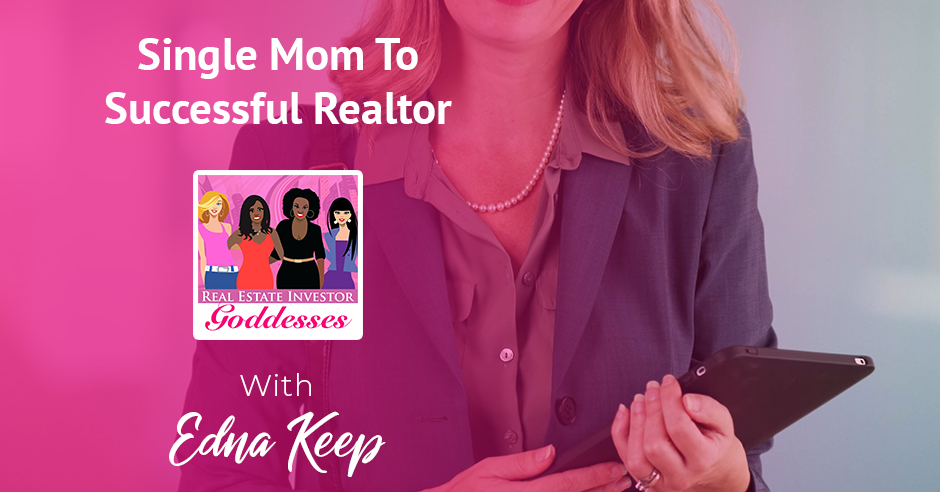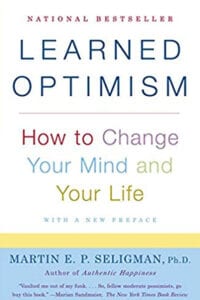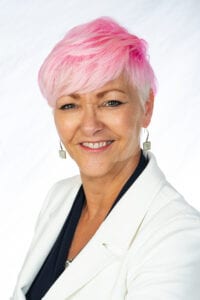
At sixteen, Edna Keep found herself becoming a single mom. Where most women find this daunting, Edna’s optimism and perseverance helped her rise to success in real estate. From living in subsidized housing, she is now the proud Co-Founder of 3D Real Estate, which owns over 500 doors valued around $60 million. In this episode, Edna shares the story of how she got started in real estate investing. She discusses why she prefers real estate over the stock market despite formerly being a financial advisor. She also talks about the biggest mistake she made and how she learned from it. Read on for more of Edna’s advice for women who are just starting out in the industry.
—
Watch the episode here:
Listen to the podcast here:
Single Mom To Successful Realtor With Edna Keep
I’m excited to have with us, Edna Keep. She’s the Cofounder of 3D Real Estate, Profit in the Prairies Real Estate Investors Group, and Multiple Ways to Wealth, a training, education and membership organization for real estate investors. She’s built her real estate portfolio to over 520 doors with a value of $16 million. She teaches others how to invest in real estate so they receive passive income allowing them to live the life they want and retire when they want. She is a woman of my soul. She’s a soul sister and that’s what I’m all about. She was a single mom at sixteen. She’s gone from single mom to successful real estate investor. She has a story we’re going to love. I’m so excited to have her. Welcome, Edna.
Thank you so much, Monick. It’s my pleasure to be here with you.
You don’t have a typical beginning from most real estate investors. How did you get started in real estate investing?
I was a financial advisor for about fifteen years. I did well and I enjoyed it. I liked it. I’m social, so I love being able to get around and visit with people and stuff. I didn’t know anything about real estate. We owned our own home. I get clients that would come in and talk to me once in a while. They would tell me they were buying real estate and I didn’t get it. In our area, inflation went up about 3% a year on average for the last 50 years. I remember you saying to a client, “Invest in an asset class that gives you about a 3% return a year.” That doesn’t even make any sense to me. They couldn’t explain it and we left it at that.
Never be scared of making mistakes. It helps you in so many ways. Share on XI had a few more investors point it out to me. The markets were not good at the time. I thought, “Maybe I should look at it myself.” We signed up with the Rich Dad Poor Dad group and took some training. That’s when I got to understand the power of real estate with a mortgage paydown by the tenant, someone else paying off your asset for you. Forced depreciation, when you’re dealing with multifamily. You can still work with investors and investor capital, which is what I was used to. That’s when I got to understand the whole nuances of real estate. Once I understood it, I couldn’t sell mutual funds anymore. I had my book for about two more years after I was introduced to real estate and then I sold it. I was done. I’ve never looked back. I never put a penny back in the markets. We built our own portfolio primarily multifamily, primarily with investor capital. We set up our own real estate investment trust. That’s going to be our next big move.
I want to go on a walk back a bit. You said that after you got into real estate, you couldn’t sell mutual funds and you never put any more money back into the market. I understand that because I have a little bit of money in the market that’s just been there. I’m letting it ride but I’ve had the same feelings about it. Tell us more about why you like real estate much better than the stock market?
At this level, you start to notice your mortgage paydown. We’re between $25,000 and $30,000 a month in mortgage paydown alone. That’s basically somebody else paying off our debt. As our buildings increase in value, as they provide us cashflow, as they provide us depreciation opportunities, tenants are paying off the buildings for us. There are five sources of income from one asset class. With mutual funds, it was all over the map. When I started selling mutual funds in 1992, at that time, my favorite fund was called Trimark. It was Canadian funded. It had paid clients 12% a year on average since 1981. I remember thinking, “I love those numbers. I could sell those numbers all day long.”
As I got involved, they were dropping and dropping. Eventually, our training people were telling us, “We should talk 6% returns.” Mortgage pay down alone in our apartment buildings is generally 7%. To me, that’s our bottom line. If we did nothing but have the tenants pay off the buildings, we would do better than 95% of the investments out there. On top of that, we have cashflow. We also have the opportunity to force depreciation in our buildings. It means that quite often, we can get huge paydays in the meantime through tax-free loans and stuff like that. All of that stuff is the power. Also, the many different ways you can get into real estate. You can rent to own. You can do agreements for sale. There are so many ways to buy real estate without any of your own money. With mutual funds, if somebody would have come in and tried to invest with me with no money, I would laugh at them out the door.

Successful Realtor: In multifamily, they don’t look at you as the person that has to pay the rent and the mortgage. They look at the apartment building as a business and it’s already paying for itself.
If you want $100,000 of stocks, you have to put in $100,000 but you can have a $100,000 property with little to no money.
My minimum investment was $100,000. If somebody would have come to me and said, “I want to put $100,000 in but I have no money. Could I borrow $100,000?” You could not even loan the money based on the markets, whereas any bank will loan you anywhere from 75% to 85%. With our reach, apparently, we’re going to be able to get financing up to 90% on our apartment buildings inside the REIT. Traditionally, 75% or 80% is not even your own money to begin with. To me, that is where the no-brainer part came in. When I did that, I couldn’t go back. People will try to talk me into buying different things like diamonds or any stocks. I was never that interested to watch stocks on a day-to-day basis. That was never something for me. I like the long-term buy and hold stuff. I like that part about real estate too.
What was your first investment? What was the first thing that you got?
This is a cool story. We were scared of everything because of my background in not knowing anything about real estate. We owned our own home but that was it. We had taken the classes and we started looking. We decided that our first purchase would be a condo because it was easy. We didn’t have to worry about furnaces and roofs and all the expensive stuff. We went around with our realtor and he showed us a condo. It used to be an apartment building that had been converted into individual condos. We could buy a single-family condo, a two-bedroom for $120,000 or something like that. He drove us over there. We took a look. As I’m standing in front of this one, he said, “My daughter had just moved in there. She was the renter.” I said, “Is it for sale?” He said, “Yes. As a matter of fact, it is.” I said, “I’m going to buy it,” because then I already know I have a good tenant. My first renter was his own daughter after she’d already been living there.
The clearer you can make it upfront, the less opportunity there is for animosity or changing your mind after. Share on XWe had to set up our corporation so we hadn’t made the official offer on the property. My daughter was telling me about the tenants right next door. They had lived there for seventeen years. We were scared of tenants. We didn’t know how to get them and what to do with them when we had them. We didn’t know any of that. I thought, “That’s a perfect tenant.” Somebody who’s been there for seventeen years and their place was nice. They fixed it up and got their own painting and different stuff like that in there. I said to my realtor, “I think I’ll buy both of them.” We had some equity in our home, so we ended up buying the one right next door to him. We still own those condos to this day.
You’re saying that you’re mostly in multifamily. Tell us a little bit more about your current investments and where you are investing.
In the transition to get into multifamily, our first two purchases were those condos. Our third purchase was an uptown duplex, a house with a basement suite. We knew straight away that the cashflow was significantly higher. After that, we start buying all these duplexes. As anybody, we couldn’t get financing anymore even though we both had good jobs, made good money and had a good network. I think we did more than most people. We bought fifteen houses before we were cut off.
It was natural to start looking at multifamily. They don’t look at you as the person that has to pay the rent and the mortgage. They look at the apartment building as a business and if it is already paying for itself. That’s how you get financing on that. Your net worth helps, of course, but that’s why we ended up moving over into the multifamily market. We’ve got to the point where we’ve got more than enough. I never had a goal of owning 500 doors. Our goal was 50. We thought that it would take us twenty years. We didn’t think we could get 50 doors. We actually got our first 50 doors in eighteen months but we didn’t know that when we started. We thought, “Fifty? That’s huge.” To have 500 is way beyond what we dreamed about.

Successful Realtor: Don’t lean heavily in any one area because that can hurt you in the long run.
We’re getting to the point where you start to learn. There are certain things you don’t like to do and certain things you like to do. We partner mostly with people who manage our deals. We still have deals, especially our first ones that we manage ourselves. We hire property management. We manage the bank accounts, the rents and all that kind of stuff. We’re getting to the point where we don’t want to do that anymore. It’s been a good ride. It’s been awesome. We still love real estate. We’ve decided to move into a real estate investment trust. I’m the Director and VP of Acquisitions. I won’t be in charge of managing the day-to-day or tenants or anything like that. I’m primarily finding deals and raising capital for the fund. That’s my biggest role.
Our first deal is in Memphis, Tennessee. Before that, the majority of our properties were in Western Canada, so Saskatchewan, Alberta and Manitoba. It’s so expensive here when you compare it to what we can buy there. We can buy between $25,000 and $30,000 a door. In our city, it’s $80,000 to $120,000 a door. It’s lower but still way over the 1% rule. That’s what we’re looking at. We’re looking at buying assets in the range of 250 to 500 units at a time. We are expanding hugely, but our role is different.
Switching gears a little bit because I want to ask you a question that I ask all my guests. We get so much more wisdom from what doesn’t go well, rather than when times are smooth sailing. What would you say is your biggest mistake and what did you learn from it?
Our biggest mistake also helped us tremendously in the long run. I always say, “Never be scared of making mistakes. It helps you in so many ways.” Our first partnership dealing with other investors were not people we’re raising money from. It’s the people we’re partnering with, they were the managing partner. We didn’t write up any agreements, everything was verbal. When everything was going great, we were buying left and right. Everything was awesome. I consider them the property managers because they had a company.
You can't go through life saying everything's a scam until it's proven otherwise. Share on XThere were few things that weren’t going well. There was a little bit of blame back and forth. Next thing you know, we’re best friends but we weren’t talking to them anymore. It was all because things were not put in writing to make clear upfront. We’re real sticklers now on agreements done upfront because it clarifies everything. There’s no guessing and there’s no changing it in the middle. When someone goes, “That was my understanding,” you can say, “Let’s look at our agreement. It clearly says.” That was one of our biggest errors at the beginning that has protected us a lot in the future.
One of the things that I teach my goddesses is the importance of having contracts upfront. A lot of times, especially when you’re working with friends or family, people think, “I don’t need a contract like that. That means that I don’t trust them.” It has nothing to do with trust. It has to do with getting clarity. The contracts at the beginning will save a relationship. When you’re happy and everything’s going smoothly, put the agreement in place. When the times are rough, you can lean back on your agreement and the relationship stays intact. The more you like this person, the more important it is to have an agreement with them that’s clear.
That’s great advice and it’s great that you’re teaching people that. It’s a common error. We weren’t warned about it. The lawyer we’re dealing with would meet with us and they’d have this 300-page document. Neither of us was going to take the time to read that. We even would make physical appointments with ourselves and go, “Let’s read three pages now.” We never did get to reading it. The other thing we learned is to keep it simple. Don’t let the lawyers be in charge of that. We ended up finding an agreement through a real estate investment network club that worked perfectly. The first one that we used for years was about seven pages long. It’s gotten more complicated as you add things and you grow. There are different things that come up that you honestly don’t think about. The clearer you can make it upfront, the less opportunity there is for animosity or changing your mind.
On the flip side, what are you most proud of?

Learned Optimism
I was a single mom earning $1,200 a month. I remember earning that much money when my daughter was in subsidized daycare. We lived in subsidized housing to becoming a multi-millionaire real estate investor that helps other people do the same thing. I was never a student. School wasn’t a big thing for me. I wasn’t considered that smart. I realized now that I am. At the time, if you weren’t a good student, couldn’t follow all the rules that the teachers gave you and memorize, you weren’t considered that smart. Now, I realized what a failing that is for people.
I work hard on helping my students understand that everybody is a genius. My daughter had a quote that she hung on my board one time that said, “Everybody is a genius. If you’re a fish and somebody is trying to teach you how to climb a tree, that’s where the problem is.” I think it’s brilliant. We’re all different and we all have different strengths. If we can learn to appreciate those strengths about ourselves and tell people, “I’m no good at that but I’m good at this,” that’s where everybody can excel in their life period. They can enjoy it a lot more than if you kept trying to get better at things that you’re no good at to start with.
My focus is living in my zone of genius. Everyone has their zone of genius. I’m working with people who are in their zone of genius. You were a teen mom living in subsidized housing. To what do you attribute your success?
Having an open mind and always thinking that I deserved better. You have to learn to live within your means and whatever that takes. You have to study it. You’ve got to learn how to budget. I thought, “I would much rather learn how to be rich.” I got that in my mind and I went, “I don’t want to be that person pinching pennies. I don’t want to be that person doing low-level jobs for the rest of my life. I want to start shooting for something better,” and I didn’t even know what. Even to this day, I think the reason we’ve kept on that path is because I’m always open. I was introduced to a business opportunity called an Automated Amazon store. We decided to invest in it. To me, it made sense.
Someone said to me, “Edna, I think of everything as a scam unless somebody proves me different.” I went, “I will never live like that.” I was almost offended. It was like, “That is so limiting.” You can’t go through life saying everything’s a scam until it’s proved otherwise. I’m the opposite. I trust everybody until they prove otherwise. I believe everything’s going to work 100% until something doesn’t. Even when it doesn’t, a lot of times you learn more from your mistakes than you do from everything that goes right for you. In the long run, it’s all good for you. It’s all about growth in your life anyway. If you make your most growth through your mistakes and the times that you’ve got that horrible feeling in the pit of your stomach, bring it on. That’s how you’re going to get better. Enjoy your life more too. If you’re worrying your whole life, how much fun is that? If you’re like, “Every day I’m alive and I can feel it,” that’s the way that I would like to keep focusing. It’s what’s helped me get to where I am now too.
Spoken as a true optimist.
Get around people doing what you want to do and be clear about what you want to do. Share on XI reached out to some of my investors who had been in a building that wasn’t doing well. I gave them my optimistic attitude. I said, “I’ll always be an optimist. I refuse to be anything but. I read somewhere that optimists aren’t always right but they’re always happier.”
I read this book by Martin Seligman that’s about optimism. He’s basically saying that pessimists are actually more “realistic.” They do have a sense of what the risks are more realistically. Optimists always think it will work out better for them than “realistic” but they have better results because they just go for it. They take more action. They are happier. It serves you to be a little unrealistic and go after those things. I hate the word realistic and that’s why I don’t like SMART goals, at least the R part, the Realistic. Who needs realistic? Go beyond your means as you do.
Shoot for the stars. At the very least, you’ll hit the moon.
What advice do you have for women who are just starting out in this field?
The number one thing is to get around people doing what you want to do. Be clear about what you want to do. Sometimes it takes you a while to figure that out. You might have to go to this class and that class, listen to this webinar and that. Once you’ve decided and you pretty much know, be around people who are doing it. Those are the ones that are going to be the optimist and say, “If I can do it, you can do it.” I tell my students that at all times. Plus, they also have been through the trials and tribulations that you’re maybe going through.
I still remember one of my mastermind sessions, one of the newer students was saying, “I can’t believe I did this, I did that.” It has something to do with a tenant. The other one who’d been a realtor and an owner for 30 years said, “Don’t beat yourself up over it. I know better. That happened to me six months ago. Sometimes it just happens. You trust, you think everything’s going to work out and then you get it. You can’t beat yourself up over stuff like that.” Knowing people who’ve been around for a lot of times and can say, “I had that happen to me. I lived through it and I turned out better,” helps a lot. It takes some of that fear of the unknown away to say, “In the long run, it will all work out for you.”
In my Wealth Through Real Estate event, I’m bringing all of these women that are doing incredible things in real estate that have been doing it for a long time and are hugely successful. That’s one of the biggest feedback that I get from people who come to the event. I see all of these women doing amazing things. We also talk about the hard parts and that makes such a huge difference. That’s great advice, to be around others who are doing it so you can be inspired and supported by them. One last question before we get into our themed end of show Trinity: the brag, gratitude, desire. What do you wish you’d known at the beginning that you now know?
It’s not to invest so heavily in one area. We invested in a hot area at one time and now it’s not so hot. That would be something that I’d recommend to people, not be so heavily in any one area because that can hurt you in the long run.
Don’t keep all your investing eggs in one market. That’s great. What is the best way for people to connect with you?
I do free coaching Fridays. I do mindset Mondays. Facebook is probably the best way, @CoachEdnaKeep. If they like what they hear and something interests them, they can always book a strategy call with me which is at ScheduleOnce.com/ednakeep. Everything is Edna Keep. [email protected] is my email address. That’s the best way. My website is EdnaKeep.com. If they have an interest, check it out. There are many ways for them to reach out and connect with me from there.
What’s one brag you have? What are you celebrating?
The biggest thing I’m celebrating is when I got the final pitch deck from my REIT, my Real Estate Investment Trust, and my name is on there. It’s so cool. There are four managing partners there. It’s like seeing your name in lights. We were excited about that and the opportunity to pair investors. 12% to 15% a year, that’s what we’re most excited about.
What’s one thing you’re grateful for?
The opportunities that get presented to us are amazing. We’re to the point where we have to choose between what we spend our time on because there are so many great opportunities out there.
Last but not least, what’s one desire?
One desire besides our REIT, because that’s going to be wonderful, is getting my Automated Amazon store off the ground. I don’t know much. I went in with blind trust because I’m generally optimistic. I’ve seen lots of people that have done well with it. That would be a totally passive income stream to us and that would be new. We’d love to be able to do that primarily because we have a couple of daughters that are done with school. In the back of my mind, I think of how cool that would be if I could say to them, “I’m going to buy you a store that would make you $15,000 a month.” We’re hoping that’s the way it goes. That would be considered digital real estate. That’s how I got sold on it. It’s digital real estate.
So shall your desire be or so much better than you can imagine.
Thank you so much. Sharing what you’ve learned and putting on events like you do, that’s powerful ways for women and anybody to learn. Get out to Monick’s event. I would love to do that myself. I love learning from other people in the industry and swapping more stories and opportunities. Sometimes we even get a chance to joint venture together. That’s always exciting as well.
Thank you so much. This was such a great interview. You guys can find her at EdnaKeep.com or @CoachEdnaKeep on Facebook. Check her out, she’s amazing. To connect with me, go to REIGoddesses.com. There, you’ll find out about our events when they happen. You’ll find out about our Investor Club, so you can get on the list to find out about passive investing opportunities. Join our community on Facebook where we have people from all 50 states and nineteen different countries. It’s growing, an incredible community of women killing it in real estate. Come back next time for another amazing interview.
Important Links:
- 3D Real Estate
- Profit in the Prairies Real Estate Investors Group – Facebook Group
- Multiple Ways to Wealth
- Wealth Through Real Estate
- @CoachEdnaKeep on Facebook
- ScheduleOnce.com/ednakeep
- [email protected]
- EdnaKeep.com
- Investor Club
- Facebook – Real Estate Investor Goddesses
About Edna Keep

Edna Keep is the co-founder of 3D Real Estate, Profit in the Prairie Real Estate Investor Group and Multiple Ways to Wealth, a training, education and membership organization for real estate investors. Edna has built her real estate portfolio to over 520 doors with a value of $60 million.
Today, Edna teaches others investing in real estate how to do it so they receive passive income, allowing them to live the life they want and retire when they want.
From single mother at 16 to successful real estate investor, Edna’s story is one that you’re going to love!





